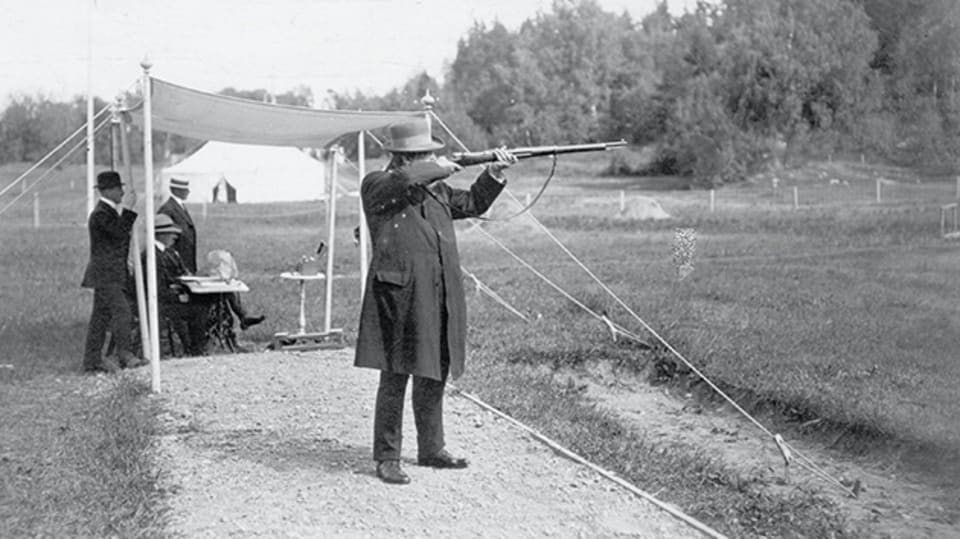Swahn's way leads to double shooting gold
If Edgar Syers’ bronze medal at the age of 45 was a noteworthy achievement, marksman Oscar Swahn’s feat deserves superlatives of its own. The Swede had turned 60 by the time the running deer events came around in July 1908 – and his double victory proved to be just the start of an Olympic story that barely seems credible today.

The ‘running deer’, which debuted at London 1908, involved one shot per run being made at a deer-shaped target that made 10 runs of around 75 feet apiece. The marksman stood 110 yards away. Swahn, a distinctive figure with a long, white beard and bushy moustache, won his first gold in the single shot competition on 9 July, defeating Great Britain’s Ted Ranken – who would win three silvers that year – by a single point.
The following day he finished with a bronze in the double-shot event, this time finishing behind eight points behind Ranken with 38 out of a possible 80. Later that afternoon his second gold arrived in the team single-shot event, joining Alfred Knoppel, Ernst Rosell and his own son, Alfred in outshooting Great Britain by 86 points to 85. Alfred, another remarkable Olympian who would go on to win two golds in 1912, two silvers and a bronze in 1920 and a silver and two bronzes in 1924, top-scored for the Swedish team with 26 points; his father made 21.
This made Swahn the second-oldest gold medallist of the time. That honour fell, also on 9 July, to Great Britain’s Joshua Millner in the 1,000 yard rifle event. Millner was 61, and also competed in the running deer but fell well short of the medal places.
Swahn would set outright records of his own in future Games. Victory in the 1912 single shot team event, at the age of 64, made him the oldest gold medallist of all time – a feat nobody has yet beaten. A silver medal in the double-shot team event at Antwerp 1920 meant that, now aged 72, he became the oldest-ever medallist of any kind and the oldest-ever competing Olympian. It is a source of fascination that the first 60 years of his life seem shrouded in mystery; Swahn left it late to become one of the most important and enduring Olympic names of all time.
